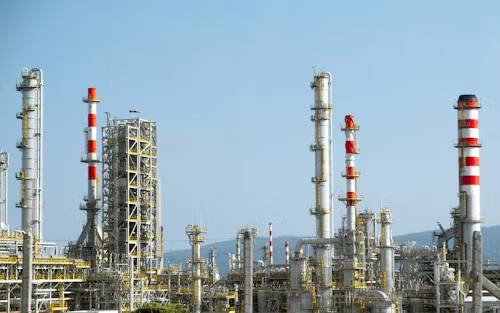Ghana’s National Petroleum Authority (NPA) recently expressed interest in sourcing petroleum products from Nigeria’s Dangote Petroleum Refinery, a decision that could lower Ghana’s dependency on more expensive European imports. During the OTL Africa Downstream Oil Conference in Lagos, NPA Chairman Mustapha Abdul-Hamid highlighted the potential for Dangote’s refinery to save Ghana up to $400 million monthly in freight costs while strengthening its fuel supply chain.
Dangote’s Refinery: A Regional Game Changer
Africa’s largest refinery, Dangote Petroleum Refinery, began operations in early 2024 with a robust production capacity of 650,000 barrels per day (bpd). Initially producing diesel and aviation fuel, it launched crude oil refining in September. This vast output enables the refinery to meet Nigeria’s fuel demands and supply neighboring countries, opening a pathway for Ghana to shift from expensive European imports to a regional source.
Abdul-Hamid noted, “If the refinery reaches 650,000 bpd capacity, it’s impossible for Nigeria to consume it all. Instead of us importing from Rotterdam, it’s much easier and cost-effective to import from Nigeria.” This transition promises not only reduced fuel costs for Ghana but could also impact prices of goods and services across its economy due to decreased transportation expenses.
Beyond fuel savings, Abdul-Hamid emphasized the broader economic benefits. He noted that increased trade with Nigeria could ease Ghana’s demand for foreign currency, supporting the push for an African common currency. This would streamline regional trade and stabilize prices, making goods and services more accessible across African economies.
This idea aligns with a long-term vision for African financial integration, which could drive efficiency across multiple sectors, from energy to agriculture, unlocking unprecedented economic potential for the continent.
Nigeria’s Hesitancy Due to Pricing Concerns
In Nigeria, however, local oil marketers remain cautious. While the Nigerian National Petroleum Company Limited (NNPCL) and other players initially welcomed the prospect of locally refined products, they currently lean towards imported fuel, citing pricing issues. Reports suggest that Dangote’s fuel is priced higher than imported alternatives after factoring in logistics costs.
Despite Dangote’s refinery products offering a proximity advantage, pricing has made adoption challenging. Local marketers argue that imported fuel remains more cost-effective, raising questions about the pricing structure of Dangote’s products. Industry analysts speculate that high operational costs and technology investments may contribute to the premium pricing.
Though Nigeria started selling crude to the refinery in naira, hoping this would lower product prices, local marketers remain hesitant, resulting in persistent fuel scarcity. Experts warn that without government incentives or price adjustments, the refinery’s goal of replacing imports and securing Nigeria’s local supply may be delayed.
In response to the scarcity, Dangote announced that his refinery holds over 500 million liters of fuel, urging NNPC and marketers to consider the local option. “I’m expecting either NNPC or the marketers to stop importing fuel; they should come and collect what we have,” he stated, underscoring the urgent need for a sustainable supply shift.


